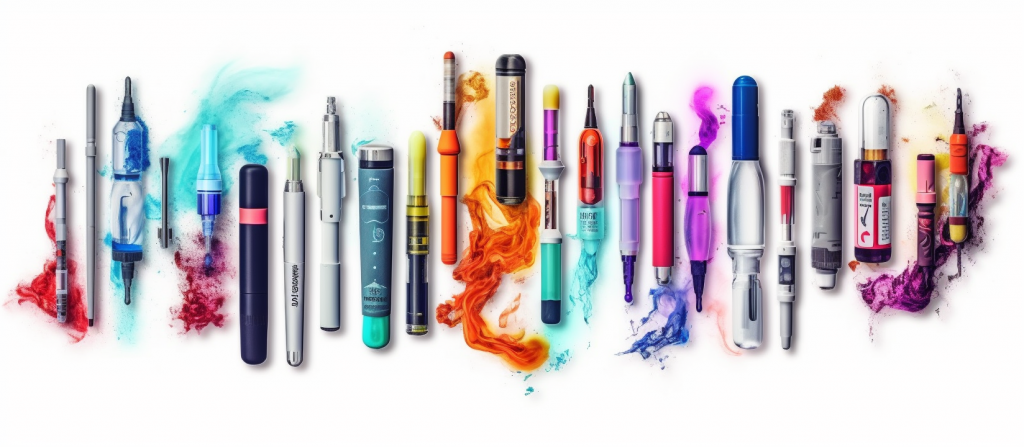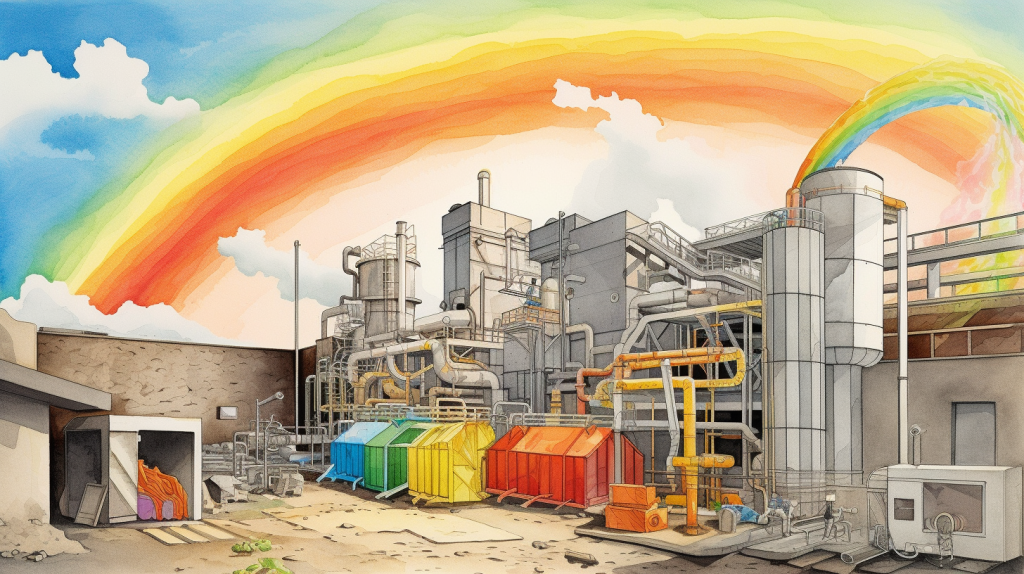Recycling
The Handbuilt City is developing a framework to recycle lithium-ion batteries from disposable cannabis vape products. This was borne out of research I did for an article in April 2023, where I found that the number of vape products that are discarded each day is pretty staggering. This becomes a problem given that “disposable” vapes are powered almost exclusively by lithium-ion batteries. Lithium-ion batteries have made the news a lot in recent years, ranging from extensive questions around the human rights and environmental impact of mining operations, to landfills literally catching on fire because they have so many consumer electronics devices in them.
Most consumer electronics with batteries are clearly marked with the “do not throw in the trash” icon, even if few people follow this. Municipalities have historically done a lousy job of communicating this, especially outside of typically wealthier, more liberal cities. Why vapes aren’t regulated as e-waste is a complicated question (see below).
Disposable Vape Pens, The Next E-Waste Nightmare
Take The Vape Recycling Survey!
We have a new Google Forms survey. This will help guide our process of developing the program:

Q. Why Are Vapes Not Regulated As eWaste?
This is a complicated question, and one I have not been able to answer definitively. Most broadly, vapes are relatively new, and the newer a product is, the less regulatory scrutiny it usually seems to receive after it’s been around for a few years. A more complex answer is that vapes are usually regulated as drugs rather than as consumer electronics, though they are a hybrid of both, in which one function is useless without the other. The FDA regulates nicotine vapes, but because cannabis is federally illegal, cannabis vapes are all regulated exclusively under state law.
There’s no great reason for why they aren’t regulated as such, but the most apparent one I found is that cannabis vapes are regulated as drugs, and tobacco vapes are federally regulated as tobacco. Neither is regulated as eWaste. At the state level, this is because Michigan’s regulatory apparatus around recycling is virtually nonexistent, and the state’s recycling rates are frankly abysmal. At the federal level, this would involve forcing multiple jurisdictions to both assume some regulatory power over the product in question, and they haven’t figured out how to do that yet.
Q. How much will it cost?
Recycling of eWaste is notoriously complicated and expensive, because of the need to mechanically separate plastic parts from metal ones, and because of how expensive it is to recycle lithium-ion batteries. Unlike everyday metals like copper or iron, lithium-ion batteries contain nasty solvents as well as plastics, which means that it’s not possible to simply melt the batteries without serious controls to avoid venting toxic gases into the air. So, we are exploring whether customers would be able to absorb some sort of impact fee assessed at the point of purchase (like when you buy motor oil or a car battery, for example). If a vape pen is $25 and the cost to recycle it would be $1, it’s fairly easy to see how this is not a huge amount of money that is passed on to the customer. However, if it costs $10 to recycle a vape pen and the vape pen only costs $10, this is clearly not economical.
The economics of cannabis in Michigan are interesting, though, because the state has relatively low taxes on the product, and the sales are in the billions of dollars per year. The effects of something like an impact fee to fund recycling would therefore be hard to gauge, given the wide fluctuations in price, but an impact fee would be disproportionately felt for the lowest-priced products on the market. Even a half-percentage-point tax on all cannabis products sold in Michigan each year would raise several million dollars per year to support eWaste recycling. This would work out to a whopping 10-15 cents for the average disposable vape pen.
Q. Cool project. How can I support it?
The Handbuilt City provides reader-supported journalism and consulting services to clients around the Midwest, working on building more sustainable, equitable cities. You can either hire us, become a paid contributor for as little as 25 cents a week ($13 per year on Liberapay), or simply tell your friends!

Timeline
- On April 5th, 2023, I wrote this article, exploring the question of vapes as e-waste.
- On June 7th, 2023, I reached out to a select number of cannabis product retailers. I have not heard back, but I will update if I do.
- On June 9th, 2023, I reached out to the Cannabis Regulatory Agency in Michigan to see if they had any insights, and had informal conversations with representatives of EGLE and the CRA.
- On June 10th, 2023, I launched this survey.
This page will be expanded as more information becomes available. This initiative is not endorsed by any state, municipal, or other public agency, industry entity of any sort, or retailer within the cannabis or tobacco industries. Yet.
